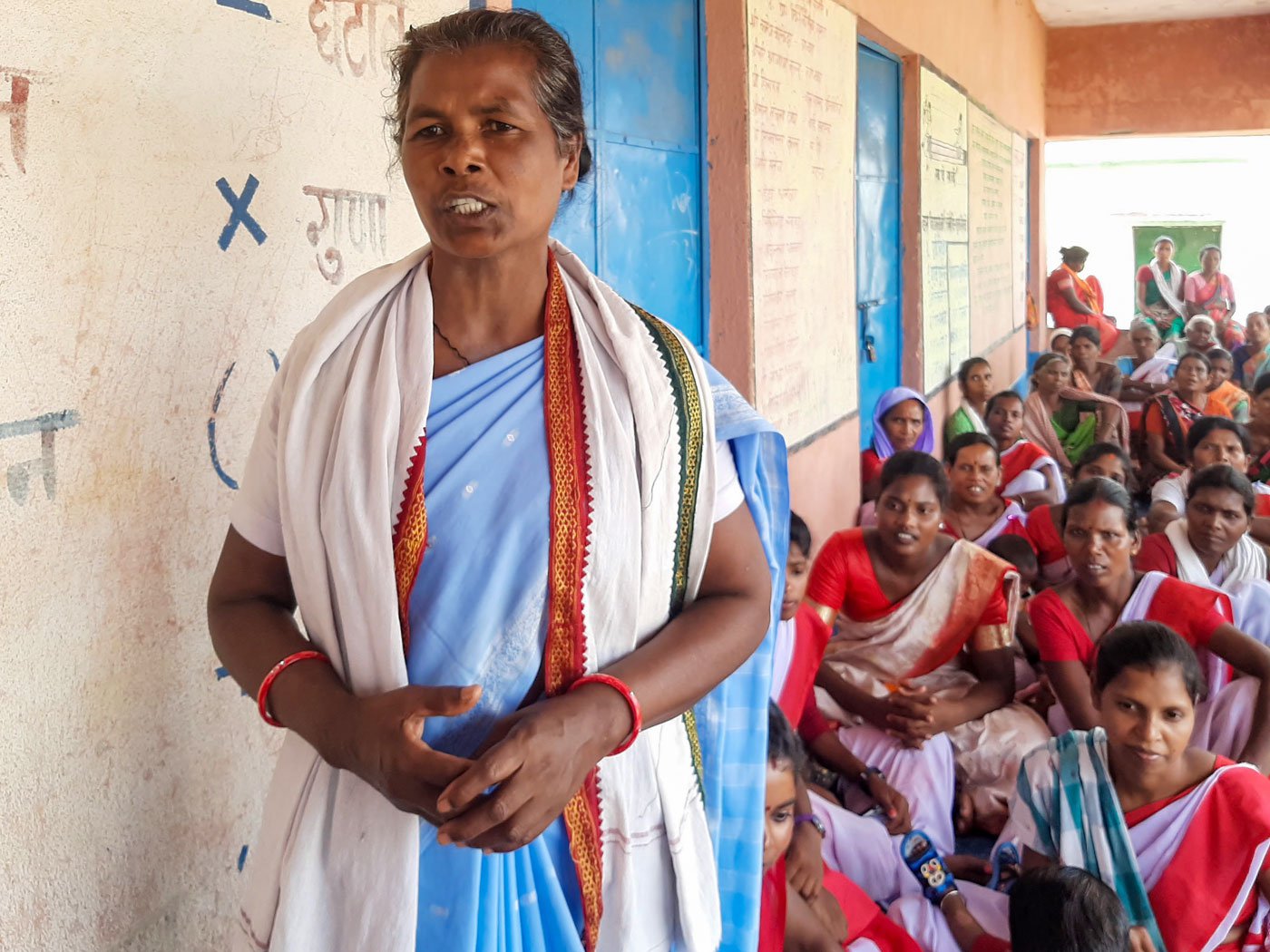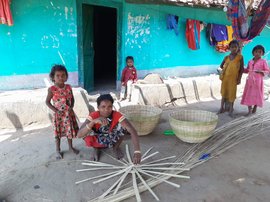“Here is your gift,” said Behari Lakra, member of the local ‘beneficiary committee’ to Teresa Lakra, sarpanch of the Tetra gram panchayat in Gumla district. And thrust 5,000 rupees in her hand. Teresa had no idea that the ‘gift’ was 5,000 in cash. Nor did she actually get the money – because, at that very moment, an Anti-Corruption Bureau (ACB) team from Ranchi closed in on the sarpanch and arrested her for seeking “illegal gratification” under the Prevention of Corruption Act, 1988.
The action shattered Teresa, 48, an Adivasi of the Oraon tribe, and shocked the over 80,000 people of Basia block in Jharkhand where her panchayat is located. No one seemed to think it odd that an ACB team had come all the way from Ranchi to this spot nearly 100 kilometres away – it took me over two hours in an SUV – to make an arrest on a bribe-taking charge of 5,000 rupees. Though the judge she was hauled up before, apparently remarked on it. The ACB team’s travel by car both ways would have taken around five hours and would in itself have cost them half that sum, leave alone other expenses.
Nor was it thought curious that Teresa had been taken to the spot – the Basia block panchayat office – by fellow gram panchayat members. The very persons who subsequently testified against her as witnesses. No less peculiar was that the team arresting Teresa, as she points out, “did not take me to the Basia police station” – right opposite the block panchayat office. Barely metres away from the scene of the drama. Instead, “they drove me to a police station in Kamdara block some 10-15 kilometres away.”
That was around June 2017.
Looking back, the Class 12 pass out realises that this was because, “in the Basia police station, everyone knows me. They all know I am not a criminal.” Subsequently, her case came up before a special court in Ranchi.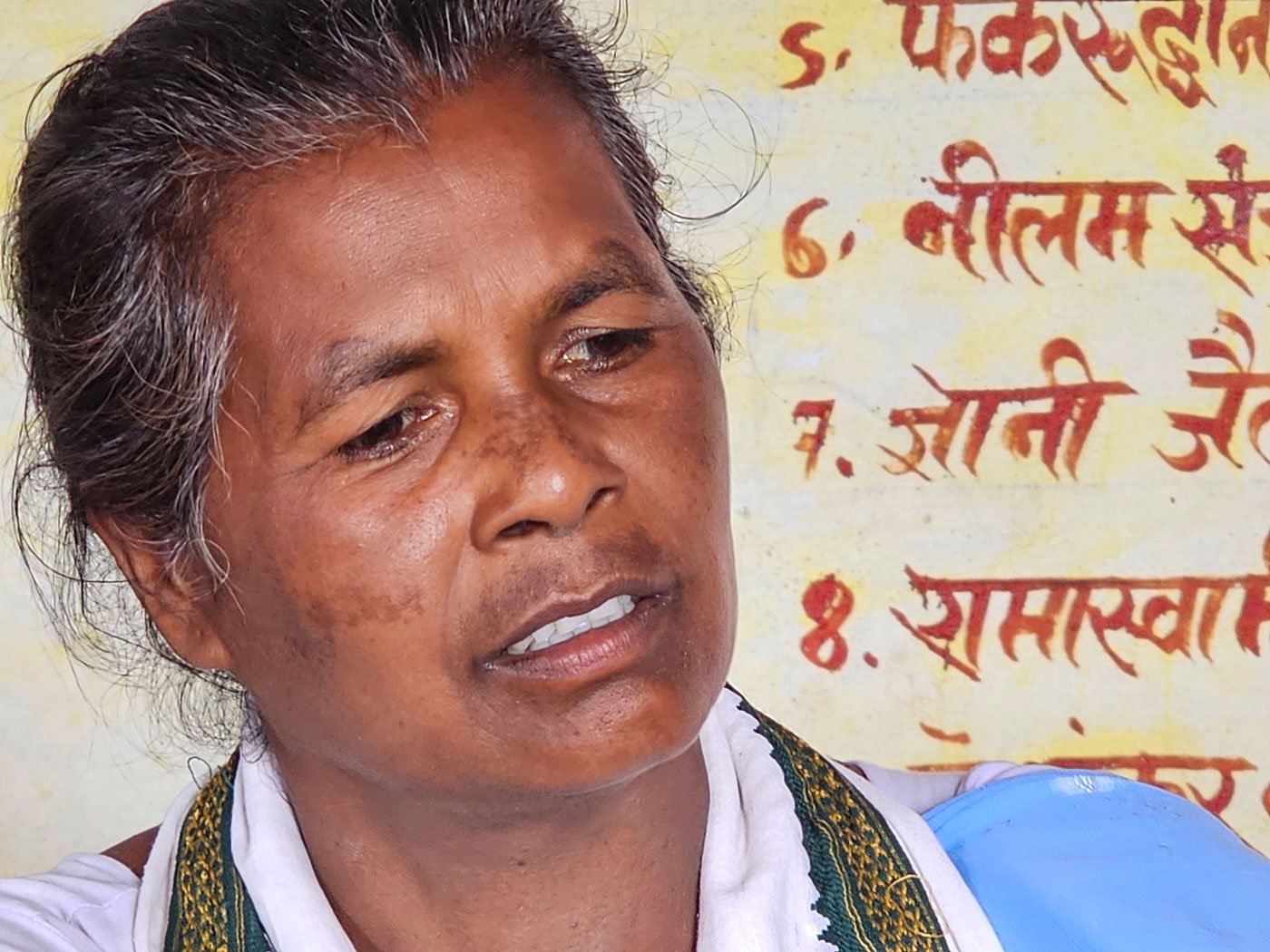
Teresa Lakra, sarpanch of the Tetra gram panchayat in Gumla district of Jharkhand
Teresa Lakra spent the next two months and 12 days in jail before coming out on bail. She was suspended from her post of sarpanch (called ‘mukhia’ in Jharkhand) within three days of her being arrested. Power in the panchayat moved at the same time to her deputy, the very upa sarpanch Govind Baraik who had kept asking her on phone to urgently come to Basia panchayat office.
And a number of leases and contracts were signed and handed out while she was in jail, though it is not clear what all they related to.
*****
The drama and her arrest caused great anguish to Teresa, her husband and two children, both daughters. “The older one, Sarita, is 25 and married,” she told us. “She studied till Class 12.” The younger one, Angela, is 18. She is presently in Class 12 and intends to study further. Teresa’s husband Rajesh Lakra is the only member of the family to have made it to college. But despite his B. Com qualification, he and Teressa have chosen not to migrate to the cities but to live and farm in Tetra village.
Traumatic as her removal from the post and her incarceration was, the deposed mukhia did not throw in the towel. “I was devastated. I was extremely sad,” she says. But on coming out of jail, Teresa took on the cabal she believed had set her up.
“I fought my removal from the post, which was illegally done,” she told me in Tetra village in the gram panchayat of the same name. She had been ousted when court proceedings had not begun, let alone a verdict handed down. Teresa took her battle to the State Election Commission (SEC) and confronted the bureaucracy in Ranchi with her illegal removal.
“I made 12-14 trips to Ranchi over months to the SEC and other offices. It cost me a great deal of money,” says Teresa. Yet justice, though delayed as always, was done. At least in that aspect of her tragedy. It took her a little over a year, but she emerged with an order for her restoration to the post of mukhia. And upa sarpanch Govind Baraik who had wielded power during her time in jail, was cut to size.
All those expenses were borne by a family owning five acres of rain-fed land from which they earn not much more than 2 lakhs of rupees a year. They grow paddy, ragi and urad (black gram) for the market. And groundnut, corn, potatoes and onions for their own consumption.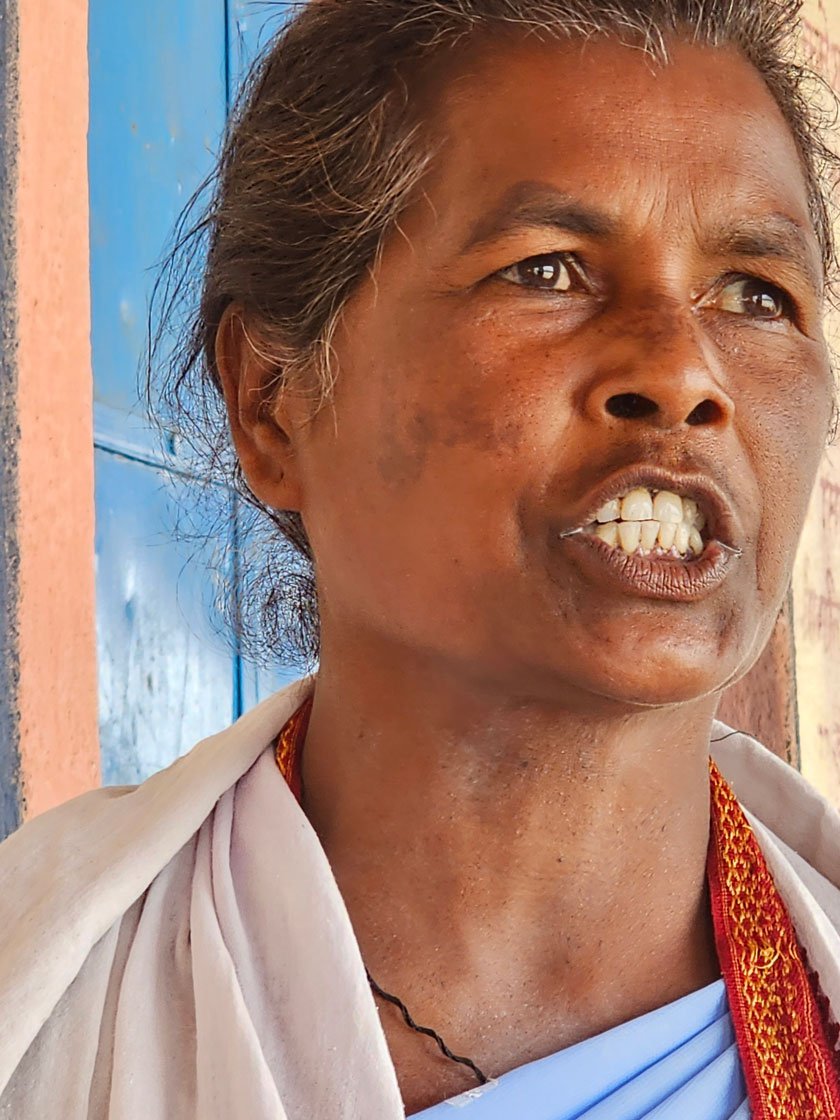
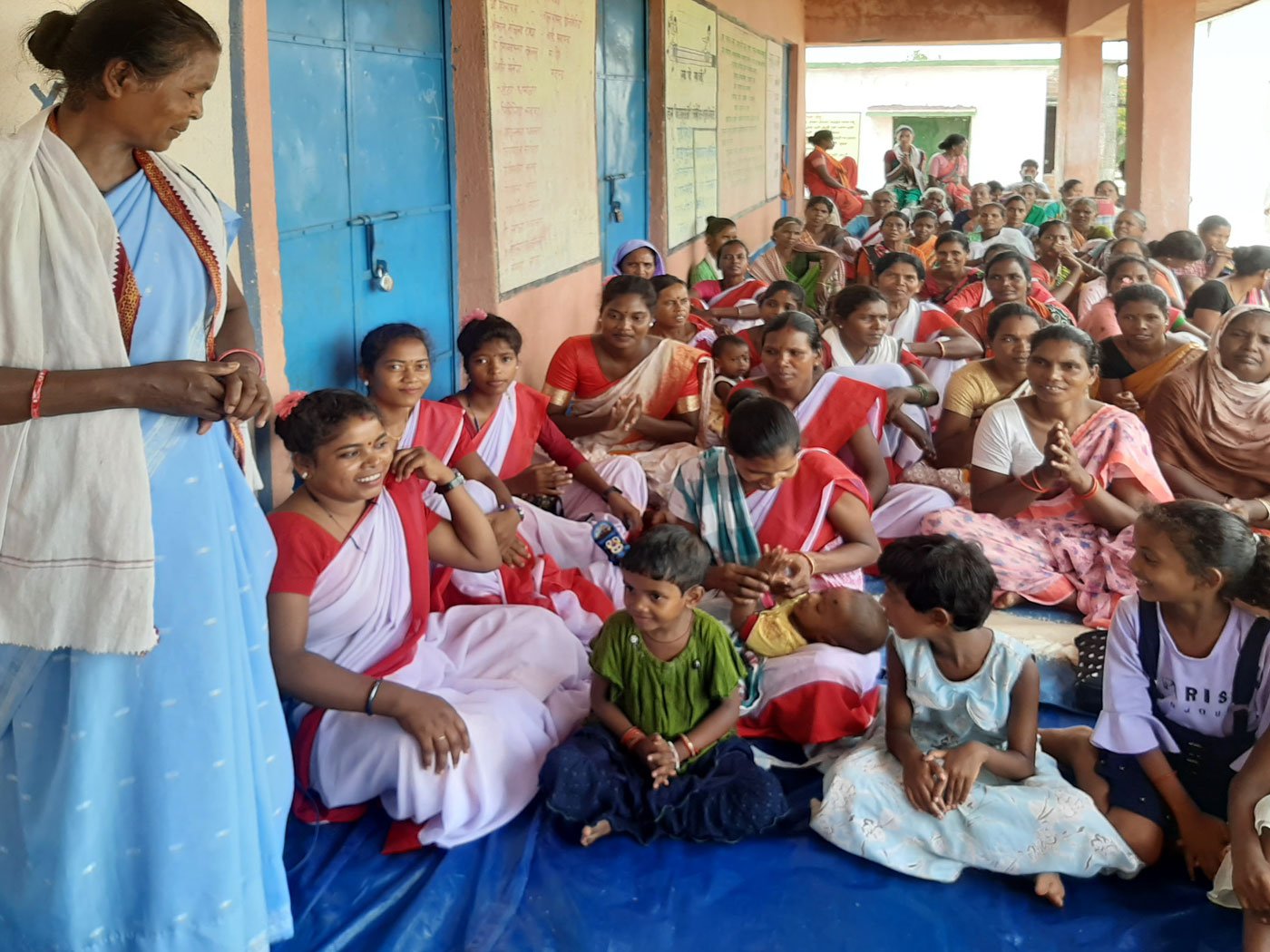
Lakra has fought the bribery allegations with her own limited resources. With her are other women (right) from Tetra village, gathered at the village middle school building
But the order she obtained from the SEC more than a year after her illegal ouster was something of a triumph.
“The block development officer (BDO) Basia quickly acted on the order, and I was restored to the post of mukhia within a week of the SEC directive,” says Teresa, with a very small smile. That was around September 2018.
In fact, the coup survivor ended up being mukhia for nearly seven years, overall. Her five-year term was nearing its end when the Covid-19 pandemic set in. With panchayat elections being placed on hold during the pandemic, the period added two years to her term as mukhia of the roughly 5,000 people of Tetra gram panchayat. The official record, even for the year she was in political wilderness will now show her name as mukhia for seven years.
Teresa is known across the panchayat for having turned down a 10-lakh-rupee bribe from a big contractor seeking to lease and destroy a nearby hillock in Solangbira village in her panchayat for rock chips. But she spent time in jail on a charge of accepting 5,000 rupees as a bribe.*****
There was a lot about the manner of Teresa’s arrest that remains curious. Why would a bribe giver want to hand out money in public – unless that was a pre-decided strategy? Why would she have received multiple calls from fellow panchayat members, including upa sarpanch Govind Baraik, urging her to come speedily to the block panchayat office when she was busy working elsewhere, she asks.
So, what was the ‘bribe’ about?
“There was this anganwadi (rural mother and childcare centre) which was in bad shape. I saw that funds were allocated for it. I got it repaired,” says Teresa. As with all such matters, a ‘beneficiary committee’ came up around the anganwadi repair project. “This Behari Lakra was a member of that committee. There was 80,000 rupees left over after completion of the work and he was supposed to return it to us. Govind Baraik kept phoning me to come urgently to Basia block panchayat office. And I went there.”
There was no reason the money had to be returned at the Basia BP office and not at the Tetra gram panchayat. Moreover, she had not even entered the office when Behari Lakra came up to her. That’s when the drama of thrusting 5,000 rupees on her – in notes treated to retain fingerprints – unfolded. And when Teresa’s nightmare began.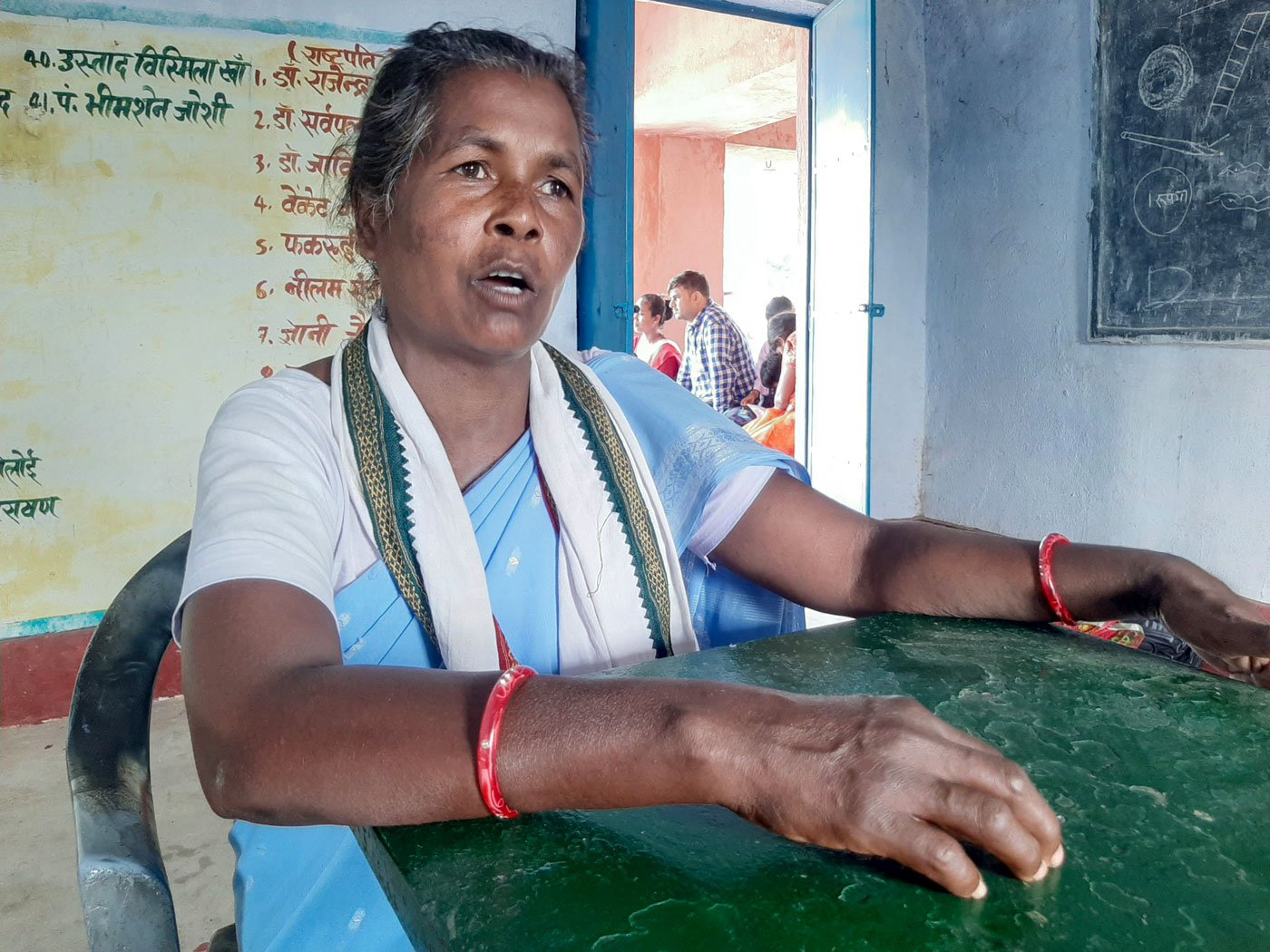
Teresa is known across the panchayat for having turned down a 10-lakh-rupee bribe from a big contractor seeking to lease and destroy a nearby hillock in Solangbira village in her panchayat for rock chips
However, that ‘bribe’ scandal seems to track back to another – of a bribe not taken.
Teresa traces the frame up back to her rejection of that huge bribe offer from the big contractor. Though she is much more vociferous in criticising her fellow panchayat members. Perhaps the contractor being linked to a very powerful politician with a nationwide reach makes her chary of revealing more.
“There was this big project, road-laying and other things,” says Teresa. “They were breaking rock chips from the hillock in our area, and I mobilised people against that. Otherwise, they would have destroyed the entire hillock. I could not let that happen.” At one point they even came to her with a document which, they claimed, showed they had received approval from the gram sabha.
“There were many signatures, including some of people who are illiterate and do not know how to sign their names,” she smiles. The whole thing was a forgery. But we’re puzzled. How could they hold a gram sabha meeting without the mukhia? Shouldn’t she be calling it?
That’s when Sunny, a social worker in these areas, reminds me we are in PESA territory. That is, areas falling under the Panchayat Extension to Scheduled Areas Act, 1996. “Here,” he points out, “the gram sabha can be called by the village traditional head.” In any case, Teresa rejected the document as fake.
Next came a real bribe offer – of 10 lakh rupees from the minions of the big contractor. Which Teresa flatly turned down, offended that they thought she could be bought that way.
And barely 3-4 months later, the ‘bribe’ frame-up unfolded. At the end of it all, the contractor was in possession of one of the two hillocks he was after.
Interestingly, Teresa never once denies she would have accepted a gift in kind, of a modest or traditional nature. “I never sought money,” she says. “In all such projects here, there are these gifts given and taken. I too,” she says with complete honesty, “would have accepted that.” It is not just in Jharkhand, though, that gifts accompany such transactions. The nature of the gift may vary – but the practice exists in all states of the country. There are, of course, individual mukhias and panchayat members who do not accept gifts of any kind. But that is not the dominant trend.
Despite her fightback against the group that framed her, Teresa Lakra’s problems are not over yet. Six years after her frame up, the legal case continues, a drain on her resources and energy. She needs help – but also needs to be careful where it comes from.
She has learnt to be wary of contractors bearing gifts.
Cover photo: Purusottam Thakur
